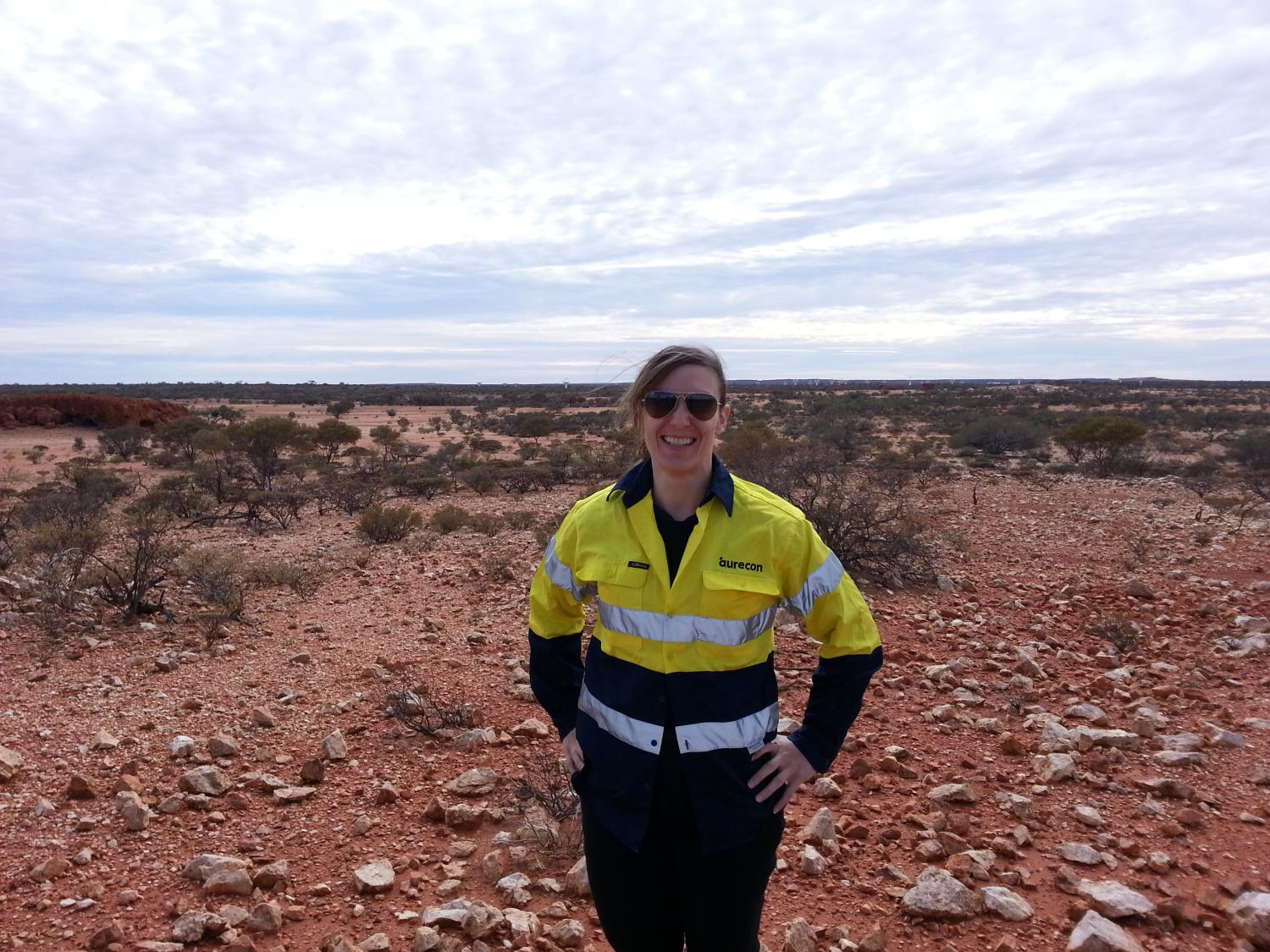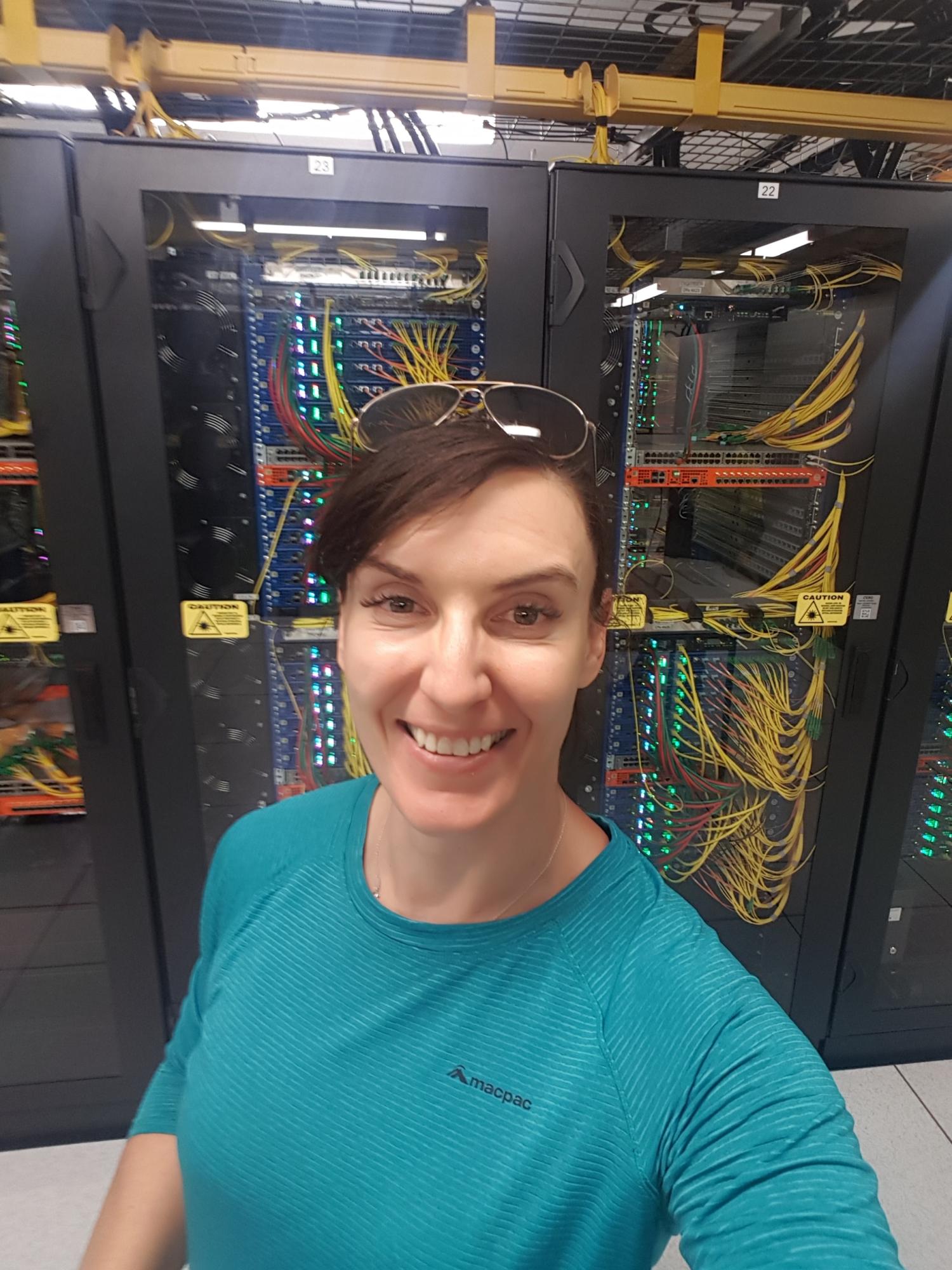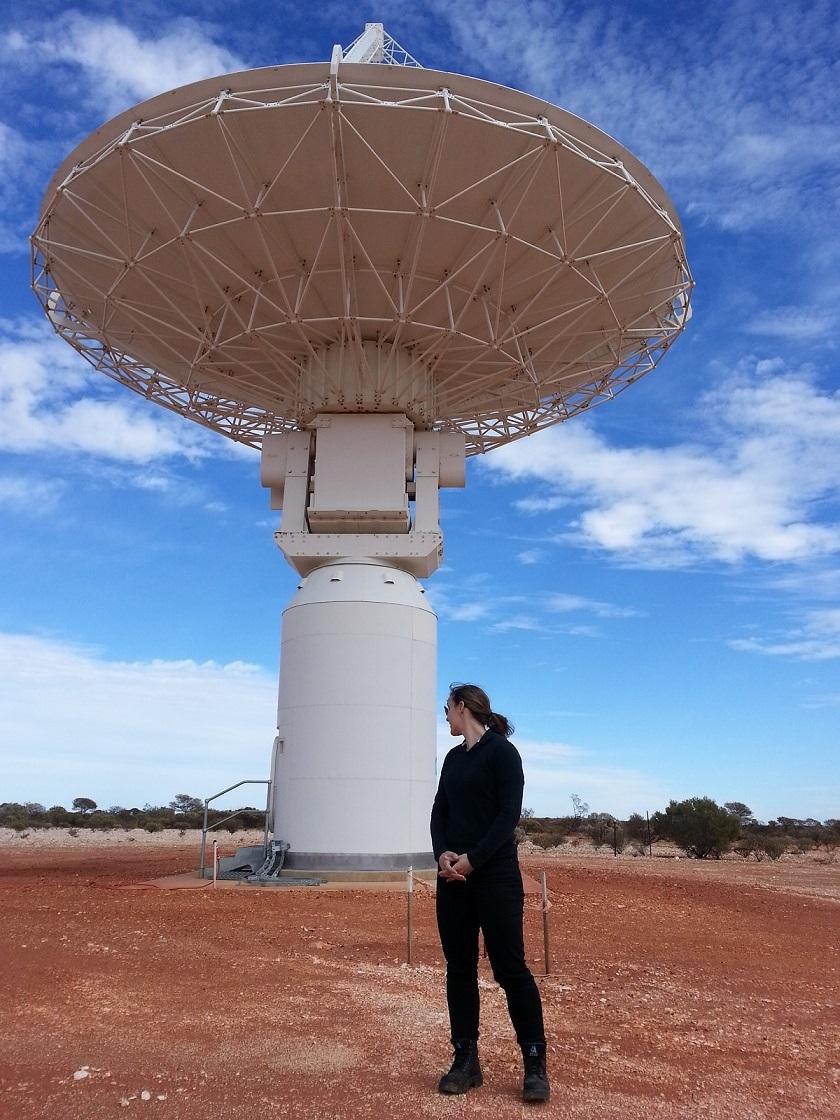Rebecca Wheadon

Rebecca Wheadon initially became involved through engineering consultants Aurecon as Project Manager for the SKA’s Infrastructure Australia consortium, working closely with consortium leaders CSIRO to develop the SKA-low telescope site. In 2020, she joined CSIRO as Site Entity Leader at the Inyarrimanha Ilgari Bundara, CSIRO's Murchison Radio-astronomy Observatory in Western Australia, future home of SKA-Low. We spoke to Rebecca about her current role, improving the gender balance in engineering, and how an early encounter with an Amstrad computer set her on a path towards the SKA.
Tell us about your background – did you always want to work in engineering?
My background is quite varied but has predominately been in ICT and Telecommunications. Ever since I was little I have always loved tech, although the term ‘tech’ in my day was nothing like it is now!
When I was eight or nine, I was the girl playing Donkey Kong or Elite (a game about being a trader in space, no less!). In fact, one way I would spend time with my mum was to sit and code my own games on my Amstrad; I was never particularly good at it, but this gave me an appreciation for how both computers and coding work.
You first joined Team SKA through Aurecon – talk us through your route to getting there.
I initially became aware of the SKA project in the mid-2000’s, as Aurecon had some very early input into one of the engineering calculations for (what became) the ASKAP foundation. I was immediately captivated by the idea of such a significant project with so many complex questions and issues to be worked.
I became involved with the Industry side of the project very early on; attending briefings, joining the Australian SKA Industry Consortium (ASKAIC) and absorbing whatever I could learn about it. Never once was it a chore for me to learn something new about SKA.
When Australia was working through its bid to become the host country, I put my hand up to assist in the collation of the response documentation. Back then it was all manual too – literally thousands of pages meticulously proof-read, tripled checked, bound and boxed and mailed off for consideration; a bit of light reading for the reviewers, no less.
From there I became involved with some project management elements of the ASKAP infrastructure design, with my claim to fame being the initial track layout for the ASKAP dishes. I certainly can’t take credit for the civil design, but that layout was me. It works, so I’m happy. Following the successful construction and commissioning of ASKAP, we had carried over into the Preliminary Design (PDR) process for SKA where I took on the role of Project Manager for the Infrastructure Australia element. PDR rolled into Critical Design Review (CDR) and honestly, the rest is history. I had become so embedded and invested in the project by this point, that there is not much I wouldn’t do to see it become a reality. Legally, of course!
When I saw the Site Entity Lead role come up at CSIRO, I thought this would be an excellent way for me to apply the skills I have to the project I love in a meaningful way.
“I’ve really enjoyed watching many hundreds of individuals all over the world work together towards a common goal”
What does Site Entity Leader do day-to-day? Is there still an SKA focus?
The Site Entity is responsible for delivering Australia’s site commitments under the SKA treaty, so yes there is still very much a SKA focus, but it has shifted slightly from what I was doing before. The Site Entity deals with all things associated with making the site ready for SKA construction. There’s an awful lot entailed in that, so when you ask me what I do day-to-day, my immediate response is ‘talk on the phone a lot’- stakeholder discussions mostly.
The CSIRO Murchison Radio Astronomy Observatory (MRO) already has existing occupants with of course, ASKAP being one of them! We also have the Murchison Widefield Array (MWA) and Experiment to Detect the Global EoR (EDGES). Each of these facilities already produces some incredible science, and their interests need to be managed and coordinated as it relates to the MRO. We also coordinate with the neighbours, the traditional owners and the wider community, through to Federal government and of course, SKAO, on anything to do with the site.

Are you based at the MRO now? What’s it like working in that environment?
Thanks to COVID-19, I am mostly confined to my kitchen table, but even if we were not working in this environment, I would not be based permanently on site. I work out of the CSIRO offices in Bentley, Western Australia. The Entity has many stakeholders that are not based out in the Murchison, so we will travel around according to what is required. That could be Murchison to Manchester and anything in between.
This all said, I was recently able to do my first trip to the Murchison and it was my first time being ‘out’ since COVID lockdown. After being confined for three months, I was reminded of the incredible contrast between life in the city versus life on the land. It’s so vast and quiet out there, and the night sky is utterly breath-taking. If ever you need a reminder of how small we are in the Universe, head out bush and look up! I am really looking forward to spending more time onsite once we are able to move around more freely again.
What’s been the most exciting or surprising part of working on the SKA so far?
The most exciting thing for me has been watching a concept become a reality over the course of my involvement. I’ve really enjoyed watching the many hundreds of individuals all over the world work together towards a common goal.
The SKA will likely be the single most important project in my professional career. To be a part of something that could change how we understand the origins of our universe is both enormously exciting and a huge privilege.
What do you most enjoy about working in the engineering sector?
Engineering has taken me to places all around the world that I would never otherwise have an opportunity to see. It’s an industry that works across physical borders and language barriers. It isn’t all hard hats and hammers; it covers an incredibly broad range of skillsets.
“We need to spark the imagination of youngsters and show them all the cool stuff they could be a part of just by being their capable selves.”

The annual International Women in Engineering Day aims to boost the number of women in the sector. What do you think needs to happen to enable that?
As the concept of gender neutral education becomes the norm, I personally believe that a generational shift is already under way which will address the industry gender balance in years to come. I never dreamed of studying engineering as a young girl even though I had an affinity for tech – when I was at school the girls learned sewing and cooking, while the boys learned woodwork and mechanics. That simply doesn’t happen anymore.
There is no quick fix – it takes time, patience and education. As employers and business leaders we have a responsibility to be involved with the education of school age kids and introduce industry skill requirements earlier than ever.
We already know that many of the traditional jobs today will not exist in 20 years’ time, and it’s the next generation that will continue to change and grow the industry. We need to spark the imagination of youngsters and show them all the cool stuff they could be a part of just by being their capable selves.
With that in mind, what are the most important skills one needs to work in engineering?
To be honest, I think we need just about everything nowadays! Engineering has modernised so quickly in recent history, and the rate of change is accelerating every day. I am quite sure someone could draw me a graph of that. Engineering doesn’t mean being really good at maths either – in my experience a common industry trait is curiosity, as we all look for the ‘why’ in all that we do!
You mentioned your work has taken you around the world, do you have a highlight?
One of my favourites was Edinburgh. We had an SKA conference in the Old Town and I had an opportunity to explore the lanes around Edinburgh Castle. What a spectacular part of the world! A number of times I stopped quietly for a moment to watch the people go about their business, so many seemingly oblivious to the 500-year-old architectural masterpiece holding the modern facade of a chemist or shoe shop. The two are at complete odds with each other, but it all just works.

Working on a project of this scale and complexity must be stressful at times – do you have any hobbies that help you unwind outside the office?
I am a track sprint cyclist in my spare time, and have represented my state and my country. I really enjoy the discipline of the training and competition, and I also now coach a number of athletes. Sport has also helped me forge new friendships in other countries and also grounds me to the community.
Any medals in the cabinet at home?
I do indeed have some medals at home, but I don’t compete to win medals, I do it because I love the discipline and psychology behind it. I am the current world champion and world record holder (in my age group that is!) in one of the velodrome sprint disciplines. I am very proud of that achievement as there is an awful lot of work and a whole raft of people aside from me that make something like that possible. As with anything I start, I have a tendency to want to do a good job of it, and I guess world champion is about as good a job as I can do!




